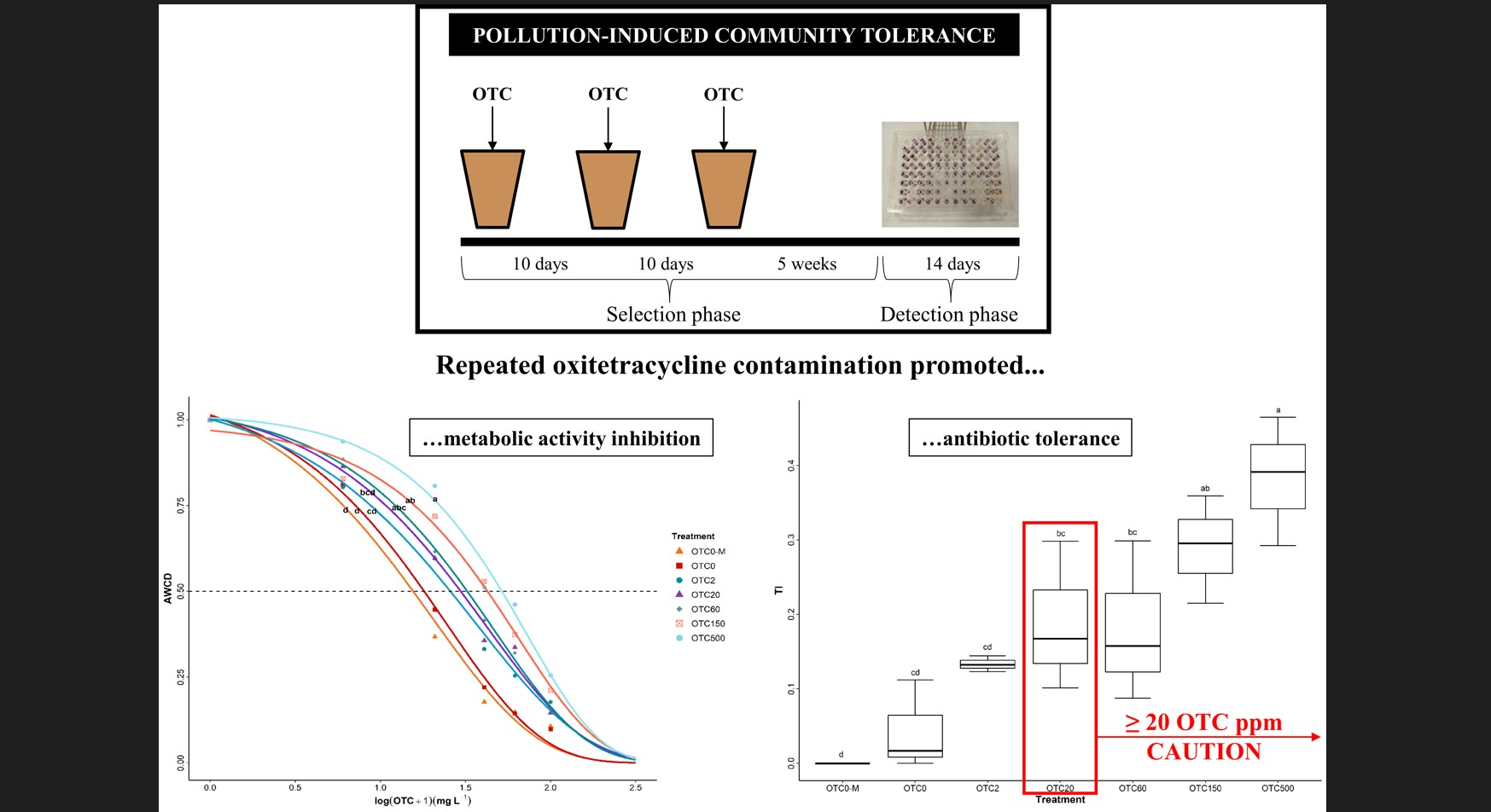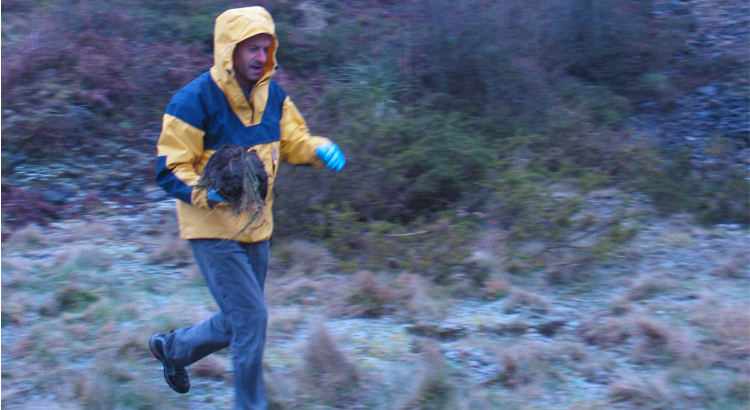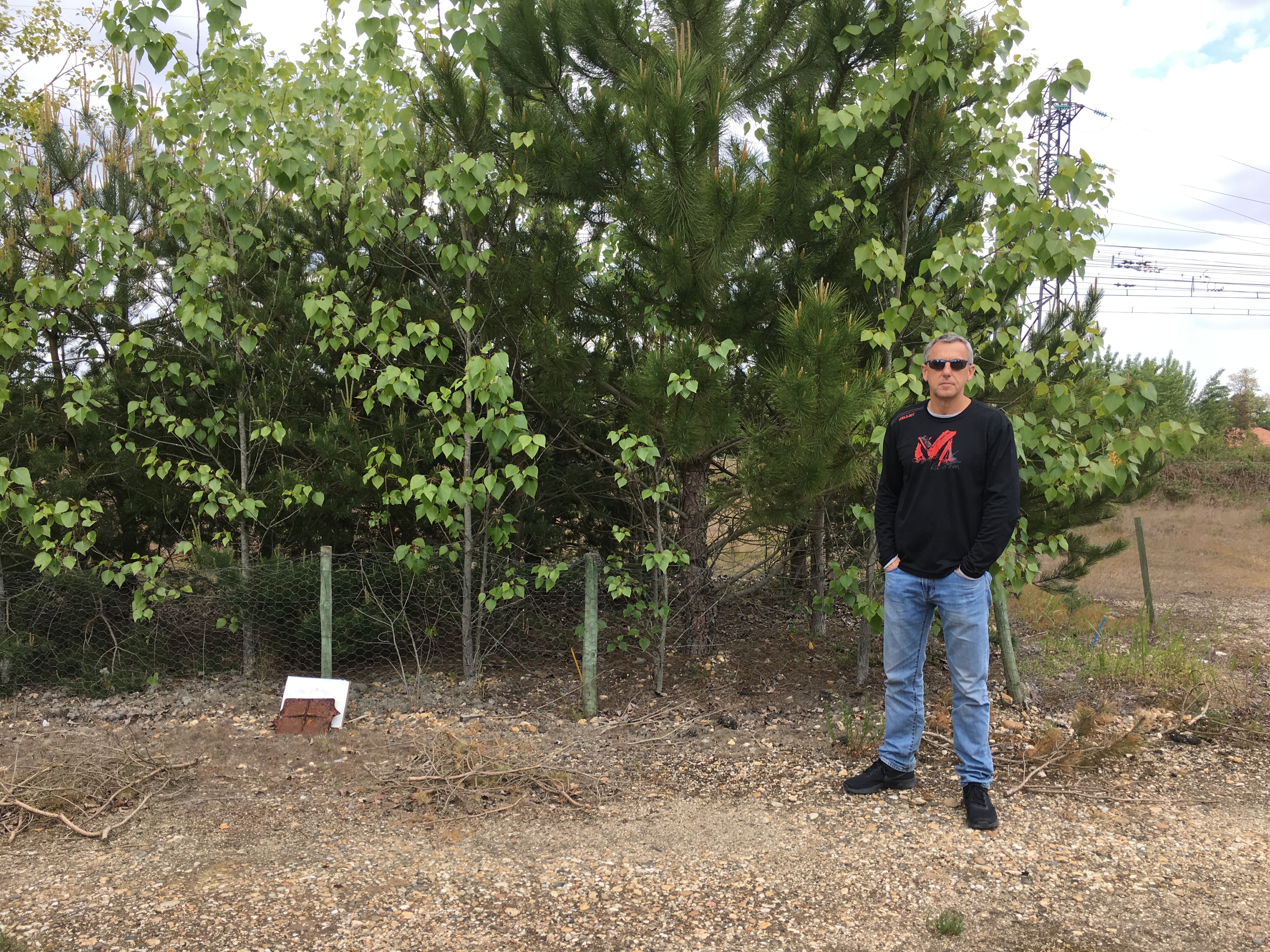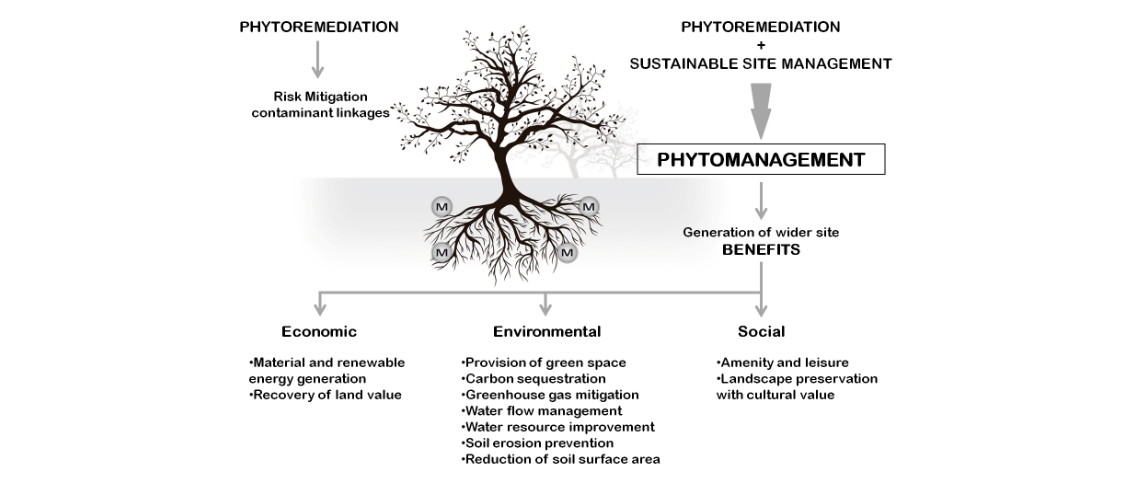Authors: Leire Jauregi, Lur Epelde, Maddi Artamendi, Fernando Blanco, Carlos Garbisu
Journal: Ecotoxicology
The use of animal manure as organic fertilizer is a common agricultural practice that can improve soil health and crop yield. However, antibiotics and their metabolites are often present in animal manure and, hence, in manure-amended soil. The aim of this study was to assess the induced development of oxytetracycline (OTC) tolerance in soil bacterial communities as a result of the addition of OTC to soil amended with well-aged cow manure. To this purpose, soil amended with well-aged cow manure was repeatedly – three times – spiked with different OTC concentrations (0, 2, 20, 60, 150, and 500 mg OTC kg−1 dry weight soil, each time) according to a pollution-induced community tolerance (PICT) assay. The PICT detection phase was conducted in Biolog EcoPlatesTM in the presence of the following OTC concentration gradient in the wells: 0, 5, 20, 40, 60, and 100 mg L−1. For all treatments, the application of OTC in the PICT selection phase resulted in lower values of bacterial metabolic activity (i.e., lower values of average well color development) in the PICT detection phase. A significant increase in OTC tolerance was observed in soil bacterial communities that had been exposed three times to ≥ 20 mg OTC kg−1 DW soil during the PICT selection phase. In general, higher levels of OTC exposure during the PICT selection phase resulted in bacterial tolerance to higher OTC concentrations during the PICT detection phase, pointing to a dose-dependent induced tolerance. It is important to (i) rationalize the amount of antibiotics administered to livestock, and (ii) treat properly the antibiotic-containing manure before its application to agricultural soil as fertilizer.




